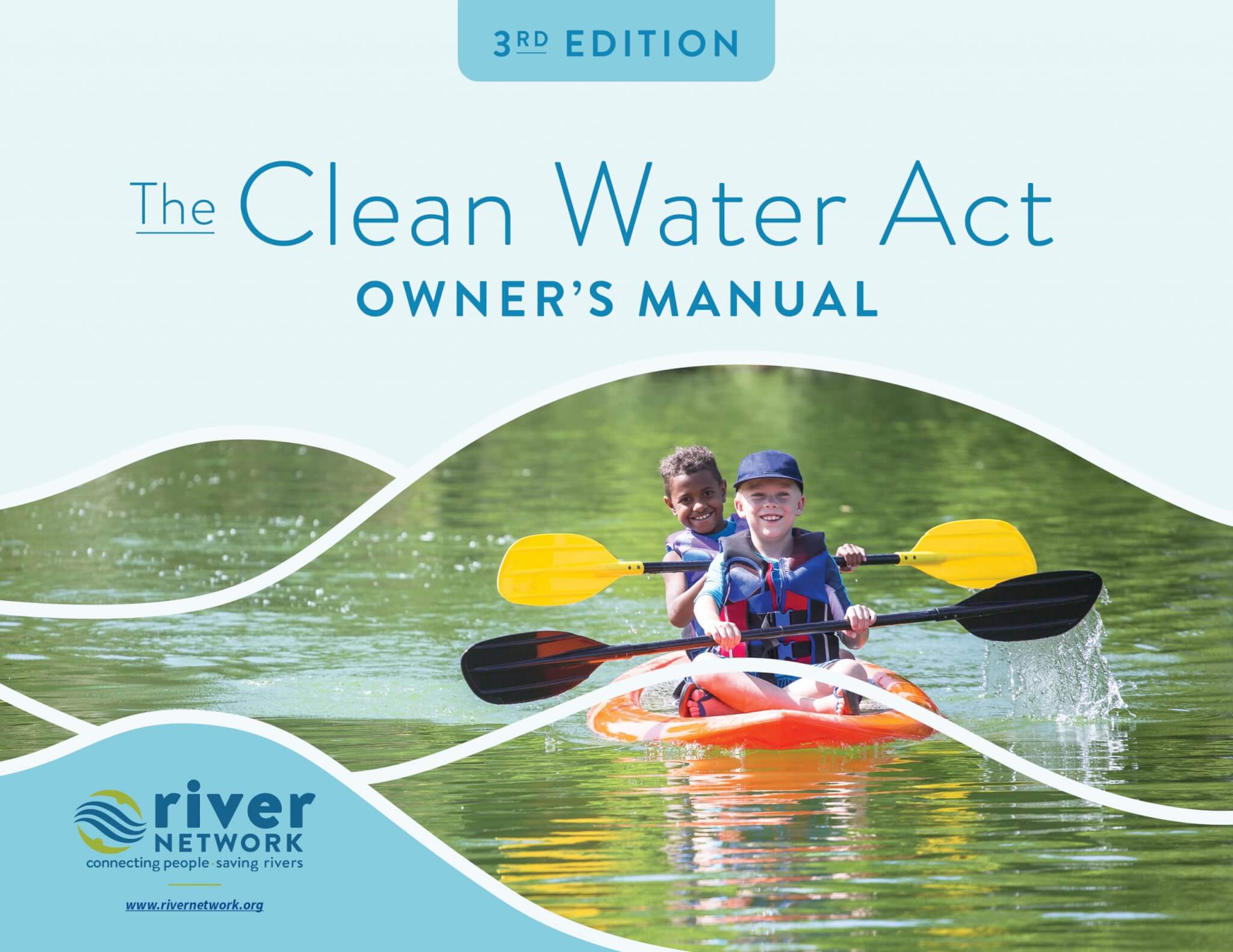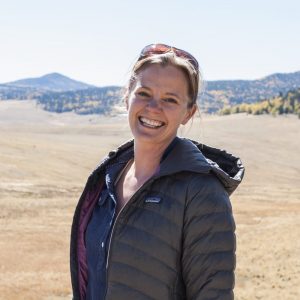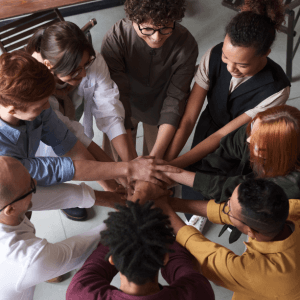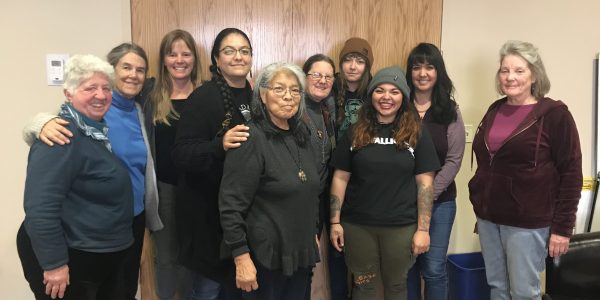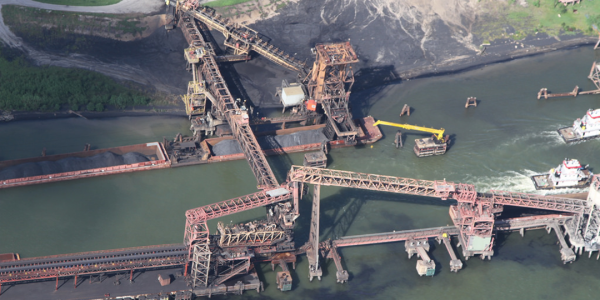River Voices: October 2022

Welcome to the October 2022 edition of River Voices. This month, we’re gearing up for the release of the 3rd edition of our Clean Water Act Owner’s Manual on October 18, and celebrating 50 years of this landmark water law.
Since 1999, The Clean Water Act Owner’s Manual (Manual) has been on the shelves of thousands of water champions fighting to protect their waterways. It has been used by watershed leaders seeking avenues to advocate for their local streams, law school professors as a guide to teach the ins and outs of the law, as onboarding material for new staff at watershed organizations, and in many more ways. River Network’s Colleen Walters was handed a copy of the Manual when she joined the organization nearly three years ago, and is now reflecting on the update process, with the 3rd Edition of the Manual releasing in just a few weeks.
“…a big part of our work is advocating for strong water quality standards for our rivers. I use the Clean Water Act Owner’s Manual for much of this work.” Rachel Conn is the deputy director for Amigos Bravos, a conservation organization dedicated to protecting and restoring the waters of New Mexico. She is also a member of the Advisory Group that developed the Manual this year.
River Network brings you this ‘shorts’ series on Board of Directors Development to highlight the various needs of boards in different stages of growth. Whether you’re with a completely volunteer-run organization, a fully staffed organization, or somewhere in between, this series is for you! We have best practices and considerations to ease the burdens of managing your board.
“We are working to make the current edition of the Manual more community centered, focused more on the climate justice angle of things. This is the best part of the new edition, in my opinion.” Matt is the Senior Policy Director for Healthy Gulf, overseeing Science and Policy initiatives. Along with Rachel and many others, he was part of the Manual’s Advisory Group.
Communities for Clean Water (CCW) is a coalition of New Mexico land-based, native, faith, and environmental organizations whose mission is to ensure that community waters impacted by Los Alamos National Laboratory (LANL) are kept safe for drinking, agriculture, sacred ceremonies, and a sustainable future.
CCW member organizations are rooted in a variety of traditions and share a common awareness that caring for clean water is a moral and ethical responsibility.
Plaquemines Parish borders the Mississippi River throughout its final 70 miles. Dozens of polluting industries border the river throughout its final sprint to the Gulf of Mexico. With increased hurricane intensity and rising seas, Plaquemines Parish, especially Black and Indigenous communities, have struggled to maintain their communities and ways of life. Communities such as Ironton, one of Coastal Louisiana’s oldest Black communities, and the Grand Bayou Indian Village, home to the Atakapa-Ishak/Chawasha Tribe are under constant threat from industrial pollution as they struggle to recover from seemingly endless hurricanes.
What Does Community-Led Climate Work Look Like?
Jacksonville residents and local grassroots organizations are working with city officials to take a markedly different approach to managing flood risks. We were thrilled to collaborate with Grist to share the story of our partners at Groundwork Jacksonville.
We’re Hiring! Communications Associate
We’re looking for an early career professional with an interest in communications and social media to join our Philanthropy & Communications team. This position begins with a research project investigating River Network communications practices from the lens of equity, diversity, and inclusion (EDI).
Bring the Wild & Scenic Film Festival to Your Community!
The Wild & Scenic Film Festival takes its festival “On Tour,” producing hundreds of events each year. Events are hosted by environmental nonprofits, schools, and museums, each creating unique festivals in their communities, raising funds, awareness, and more.
A New Clean Water Act Owner’s Manual for a New Generation Clean Water Champions
Oct. 18, 10a PT / 1p ET
Join River Network as we introduce the updated Manual, walk through how to use the resource, celebrate the team and experts that helped make it all possible, and hear about what’s next to support you in using this tool to meet your local clean water goals.
Intro to NRDC and NCLC’s Water Affordability Advocacy Toolkit
Oct. 26, 10a PT / 1p ET
Learn about a new Water Affordability Advocacy Toolkit published by Natural Resources Defense Council (NRDC) and National Consumer Law Center (NCLC). The Toolkit offers a menu of utility- and state-level solutions, recommendations from community organizations, advocates, and more.
The Nuts and Bolts of NGO Budgeting: 2-Part Series
Nov. 9 & , 9a PT / 12p ET
Organizations of all sizes are facing budget challenges this decade driven by the COVID-19 pandemic, shifting funder priorities, stimulus money and more. In this series, River Network will host The Fellows Group to talk about budget approaches and restricted vs. unrestricted funding.
This month, explore success stories and important commentary on the Clean Water Act from across the network:
- “50 years of progress: Mainers celebrate Clean Water Act anniversary in Lewiston”
- Wasting our Waterways: Toxic pollution and the unfulfilled promise of the Clean Water Act
- “What Is ‘Triennial Review,’ And What Does It Have To Do With Your Favorite Stream, Lake, Or River?”
- “For the First Time, EPA to Hold Large Properties Accountable for Stormwater Pollution”
- “What You Need to Know About Sackett v. EPA“
- Prehistoric fish may spawn in Georgia: 1st time in 50 years
- Maine: 50 Years of Water Quality Restoration and Protection


